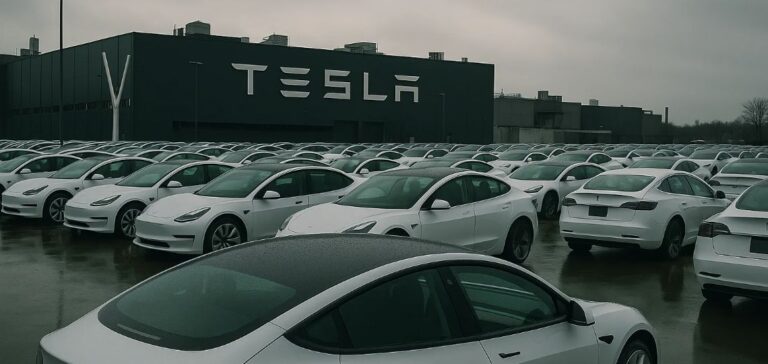Tesla sales in the European Union plummeted by 36% in March 2025 compared to the same period in 2024, according to figures from the European Automobile Manufacturers Association (ACEA) published on Thursday, April 24. This decline also translated into nearly a 50% drop for the entire first quarter of the year. Tesla registered only 36,167 vehicles during the first three months of the year, compared to 65,774 during the same period in 2024.
Continued decline in sales across Europe
This decline marks a continuation of the trend observed in recent months. Tesla is suffering from an aging product range and an image affected by its CEO, Elon Musk, whose political stances have sparked controversies. Musk’s rapprochement with Donald Trump, in particular, has contributed to polarizing public opinion, with calls for boycotts and protests against the brand. This situation was highlighted by Tesla itself, which warned that these changes in “political sensitivities” could significantly impact demand in the short term.
Dynamics of the electric vehicle market
On the other hand, electric vehicle registrations in the European Union increased by 17.1% in March, reaching a 15.2% market share. This growth was driven by strong demand in Germany, Belgium, and Denmark, as well as a slight increase in Spain and Italy. In France, however, sales dropped by 14%, with the effects of the reduction in the ecological bonus still being felt. Hybrids, which combine a thermal engine and an electric motor, saw strong growth, accounting for 35.5% of sales, compared to 28.7% for gasoline-powered models.
Impact on Tesla and other market players
This dynamic highlights a gap between the EU’s ambitious decarbonization goals and the reality of slower consumer adoption of electric vehicles, according to Sigrid de Vries, the general director of ACEA. For Tesla, these results represent a major challenge, not only due to increasing competition from other European manufacturers but also due to an increasingly complex political and economic environment.






















